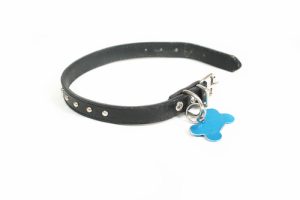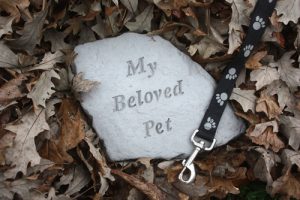The anxiety and pain associated with a misplaced loved one is tremendous. A parent that discovers a son or daughter soldier that is overseas that becomes missing in action, or a lost child, if even for those first seconds at a store are intense pains. The continuing agony over the next days, months and years lead to a unresolved and ambigiuous grief that has no ending or conclusion to heal from. The constant suffering of wondering what happened can torture the soul. The desire to hope can also be a paradox. On one side, hope can be inspirational, but on the other side, it can become delusional and a prevention from acceptance and adaptation to the loss. This deep fog of grief with no conclusion can lead individuals to variety paths of despair or unhealthy hope.
Unresolved Loss in Losing a Pet
It is important to not forget pet owners. This disenfranchised group many times are overlooked in pet deaths. The common quirks that is only a cat or dog, or one can simply get another one are all too common insensitive remarks that pet owners are exposed to. It is no wonder then, that pet owners are sometimes also forgotten when a pet is stolen or lost. It is important to not assume that many of the same feelings of anxiety and depression are not present for a pet owner.

In fact, a pet owner who loses a dog or cat, or has a pet stolen will indeed experience the same questions. They will wonder what happened, or if my pet is OK, or if my pet is hurt, or if my pet is being treated horribly and these thoughts will torture them. As the years go by, the same imprint of doubt will exist within the pet owner. They will experience the same trauma as any person who loses a loved one. Of course, some pet owners, may not form attachments with their pets, as some, but for those who understand the true bond between human and pet, the pain remains the same.
Imagine losing a dog and never knowing what became of the once beloved dog that everyday welcomed you home and depended on your love and care? When dogs or cats or horses or other pets are lost or stolen, the same fears, doubts and anxiety exist in pet owners. There is also the same decision to give up hope or to continue the belief that maybe one day one will be reunited. There is also the emotion of falling into complete despair and giving up. Ultimately, the inability to form some type of conclusion as to what happened to one’s pet can keep one up all night. Unlike, a pet who had died, one is left with terrifying thoughts of what possibly could have happened. Was my pet hit by a car and left to the side of the road? Was my pet mistreated by some unscrupulous person? Was my pet hopefully found by a loving person?
Sometimes good things can happen. For those lamenting the most horrible, allow me to introduce one small story. My family discovered one day on the side of the road a beautiful black and white Siberian Husky. As a family that loves Siberian Huskies, my family immediately retrieved the hungry and tired boy and fed him and gave him shelter. Various online and paper ads were given out but to no answer. After numerous months, the Siberian Husky became well adjusted to his new family and other dogs. He lived a long 8 to 10 years and had a very loving and peaceful happy death.
Hope, Despair, Guilt, Blame
So hope or despair? How the mind copes in unresolved grief varies on individuals. Resiliency, support mechanisms, and outlooks all vary from person to person in these types of losses. It important to note that since it grants no finality, this type of grief is prolonged, can lead to severe anxiety and also develop into depression. When individuals fail to cope, they can lose interest in daily life and activities. They can also start to isolate and find little joy in life. When these situations occur, it is imperative to find the proper professional counseling that can help with cognitive therapies or provide necessary medications. Some pet owners may also in their despair enter into extreme guilt. They will second guess their choices or wish they would have done this or that, or they may have been temporarily angry at their pet before the pet went missing. These issues of guilt will need addressed in counseling and logically dismissed. There is also the issue of resentment and blaming of other family members who may have made a mistake in letting the pet loose. In these events, all parties are deeply hurt and sad and once passed the raw emotion, it is time to move past and forgive. The reality is one’s pet is greatly loved and despite short comings or mistakes, or could have or would have scenarios, one needs to focus on the love that was shared not the mistakes or temporary emotions.

If one chooses to hope, then this should not be dismissed. Obviously, one must identify pathological hoping that places unrealistic expectations and negative coping. For instance, if one feels they can never again leave the house for fear they may miss the return of their dog, or develop sleep disorders for fear of missing the sound of a bark, then an individual may need professional help, but if one wishes to push forth hope in productive ways, then it can be a beneficial way to help adjust to the loss itself.
Many individuals who deal with unresolved grief through missing persons utilize their energy in ways to produce social change. For MIA soldiers, many families may form organizations or movements that bring recognition to it. Some who lose a pet may feel the need to supply helpful tips to prevent losing a pet or bring recognition to various animal shelters, or be a voice against animal abuse. In this way, their energy and loss bears some fruit and value and ultimately allows one to find some purpose in the loss itself.
How Can I Prevent Losing a Dog or Cat or Horse?
Despite all best efforts, a pet can get loose, run away, or be stolen but there are some preventative measures one can take to minimize these things. First, it is important to tag your animal with a collar with appropriate contact information. Second, all pets should be electronically chipped. One can even list on the tag that your pet is electronically chipped if someone finds your pet. In addition, one can have trackers put into a pet’s collar that sends information to one’s cell phone. Of course, this is only as good as the collar staying around the pet’s neck and the device’s battery charge. Third, be sure that your surrounding neighbors know your pet and his or her name. Fourth, secure your home. Ensure visitors understand that doors need shut and windows need closed. Many individuals need to build fences around their home. Ensure your fence is equipped for the task and make any modifications needed. Fifth, purchase proper collars and walking gear that is equipped for the breed’s urges and size. Sixth, when walking your pets, let them know their surroundings. Let them mark the surrounding areas and teach them the word “home” in case they ever become lost. Seventh, train your pet to return when called upon. Treat and positive reinforcement for returning upon call are critical. Eighth, know your breed. Some cats may be outside cats and return, other may be more nomadic. In regards to dogs, some breeds have great homing abilities, while other breeds like Siberian Huskies, will run and run until they become completely lost. Some breeds may chase small mammals and become easily lost as well.

When losing a pet, it is important to discern when. Quickly running out and looking is imperative to tracking down a pet but unfortunately sometimes, pets vanish when while one is away or asleep or preoccupied, it is important to be decisive within the first hours, days and weeks. In my personal experience, I have lost pets from 20 minutes to 2 hours to a full week. Every single one of incidents is an anxiety ridden and fear filled episode of life. So it is critical to be proactive early. After searching and calling friends and family and even stopping every stranger on road if he or she has seen one’s pet, one must remain proactive. This includes calling all vet clinics. If one’s pet is chipped, there is a good chance a good Samaritan will take one’s pet to a local vet. The more clinics called, the better chances of finding one’s pet if indeed he or she was picked up. In addition to animal clinics, one should also contact animal shelters and any municipal animal centers as well as fire, police and mail services. In addition, posting on FB and other social media platforms can be extremely helpful. Numerous times, individuals post they have found a dog. In fact, this is how I found one of my Siberian Husky’s through a random person on a bike who said he had seen the description of my dog on his feed. (Miraculous). Yet despite the 21st Century many social marvels, do not discount the power of basic 20th Century social contacting by merely posting a picture on a telephone pole or listing an ad in the paper with promise of reward.
Conclusion
It is my sincere hope, losing a pet is never permanent, but for those who suffer this deep pain, realize there are support groups and professional help that will recognize your pain.

For those looking to help others with pet loss or losing a pet, please also review AIHCP’s Pet Loss Grief Support Program. The program is online and independent study and open to qualified professionals seeking a four year certification in Pet Loss Grief Support.
Additional Resources
“Incomplete Endings: Coping With a Runaway or Lost Pet”. Clark, A. (2017). Psychology Today. Access here
“Lost Dog? What to Do If Your Pet Goes Missing”. AKC Staff. (2021). American Kennel Club. Access here
“What Ambiguous Loss Is and How To Deal With It”. HealthEssentials. (2022). Cleveland Clinic. Access here
“What Is Ambiguous Grief and How to Begin Healing”. Sarazln, S. (2023). Psychology Today. Access here


